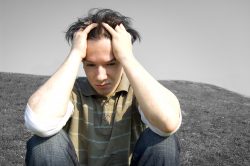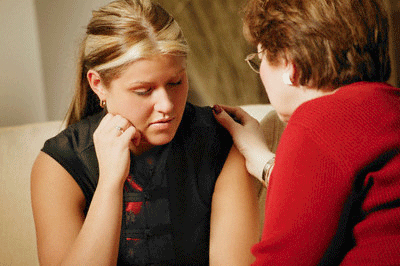Is My Teen Showing Signs of Antisocial Personality Disorder?
Considering how society and lifestyles have changed over the years, the teenagers of today are fairly different from the teens of 20 and 30 years ago. Today’s teens face a myriad of stressors and challenges that otherwise didn’t exist in previous decades.
Under these conditions, personality disorders can quickly take root, one of which being antisocial personality disorder. For treatment call 888-647-0051 (Who Answers?) .
According to Bryn Mawr College, antisocial personality disorder exists as the most common personality-based disorder with an estimated two to three percent of people affected at some point in their lives.
While antisocial personality disorder does fall under the adult classification, the traits that characterize antisocial tendencies typically start to manifest during the teenage years.
Antisocial Personality Disorder in Teenagers
Traits of antisocial personality disorder in teens fall under the conduct disorder diagnosis, which, in many cases, becomes a precursor to full-blown antisocial personality disorder. An estimated 40 percent of teens with conduct disorder go on to develop antisocial personality disorder. On average, males are five times more likely to develop these traits than females.
Teenagers affected by this condition generally display maladaptive behaviors borne out of an overall coldness and disregard for the well-being of others. These behaviors typically go against the grain in terms of accepted societal norms where teens may manipulate, violate and/or exploit the rights of others.

Teens with antisocial personality disorder have a low tolerance for frustration.
Not sure if your insurance will help cover your treatment costs? Call our helpline at 888-647-0051 (Who Answers?) for more information.
Symptoms
Teenagers showing antisocial personality disorder traits tend to have a cruel streak. Teens may appear arrogant and have a low tolerance for frustration. Poor impulse control is also common. In cases where a teenager wants something, he or she can display chameleon-like qualities in terms being incredibly charming and pleasant for the purpose of getting what he or she wants.
According to the U. S. National Library of Medicine, other symptoms of antisocial personality disorder include:
- Lying
- Frequent fighting
- Stealing
- Delinquent behavior
- No regard for the safety of others
- Feel no remorse or guilt for their actions
- Fire-setting
- Cruelty towards animals
Risk Factors
Risk factors associated with antisocial personality disorder traits involve most every major area of a teen’s life, including school, peer groups and overall lifestyle, according to the Canadian Journal of Psychiatry.
Unless a teen is motivated to perform well in school, episodes of tardiness and absences will likely prevail. Under these conditions, a teen will tend to gravitate towards other like-minded peers, which only works to reinforce maladaptive behavioral tendencies.
Also of concern is the high incidence of depression in teens struggling with antisocial personality disorder traits. In effect, problems with impulse control coupled with a low frustration tolerance level can place a teen at considerable risk of suicide when depression becomes an issue.
Treatment Considerations
When left untreated, teens displaying antisocial personality traits may face imprisonment, become increasingly violent with time and develop substance abuse problems. As forming genuine, positive relationships is especially hard for these teens, the likelihood of “growing out” of these behaviors is slim to nil.
If you suspect your teen may be showing signs of antisocial personality disorder and have more questions, or need help finding available treatment options, please feel free to call our toll-free helpline at 888-647-0051 (Who Answers?) to speak with one of our phone counselors.






